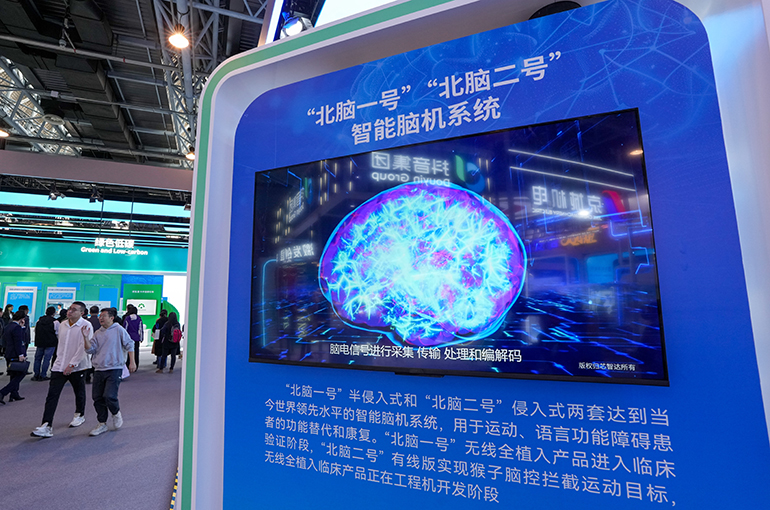 Chinese Scientists Achieve Milestone With First Beinao-1 Brain Chip Implants
Chinese Scientists Achieve Milestone With First Beinao-1 Brain Chip Implants(Yicai) April 2 -- The Beinao-1 smart brain-computer interface device has been successfully implanted in the first three patients, allowing them preliminary motion decoding and decoding output of nearly a hundred common Chinese words.
The patients have recovered well after the operation, the Beijing Institute for Brain Disorders, the leading developer of Beinao-1, announced yesterday. The project will likely launch formal clinical trials after obtaining regulatory approval next year, it added.
In a video released by the institute, people with cerebral palsy can be seen controlling a robot arm to pour water into a cup and share their thoughts on a computer screen after receiving the Beinao-1 brain chip.
Beinao-1 is used for functional substitution and rehabilitation treatment of patients with motor or speech impairments caused by spinal cord injuries, strokes, and other conditions, Professor Luo Minmin, joint director of the institute, told Yicai.
The BCI system implantation for the first batch of patients is an investigator initiated trial, with another 10 people likely to receive Beinao-1 this year, Luo noted. The plan is to enroll 50 patients after obtaining approval from regulators and formal clinical trials are launched next year, Luo added.
Beinao-1 is the world's first high-throughput wireless fully implanted chip and is an electroencephalogram-based BCI system, Luo said. The Beijing Institute for Brain Disorders is also developing the Beinao-2 wireless chip, which adopts a different technical route from the first version, maximizing the signal quality, Luo pointed out.
A monkey implanted with Beinao-2 was able to control a robot arm, Luo revealed, adding that the chip will likely be implanted in human patients next year.
The research and development of BCI technology in China is accelerating, with the number of related projects surging over the past year.
At the end of last year, Suzhou-based BrainRobotics Institute and the team of Hong Bo, a professor at Tsinghua University's School of Biomedical Engineering, announced that their co-developed wireless minimally invasive BCI device, NEO, was implanted in three humans. After the operation, the patients could control their arms with their thoughts to complete simple actions such as picking up a cup of water.
Editors: Tang Shihua, Martin Kadiev